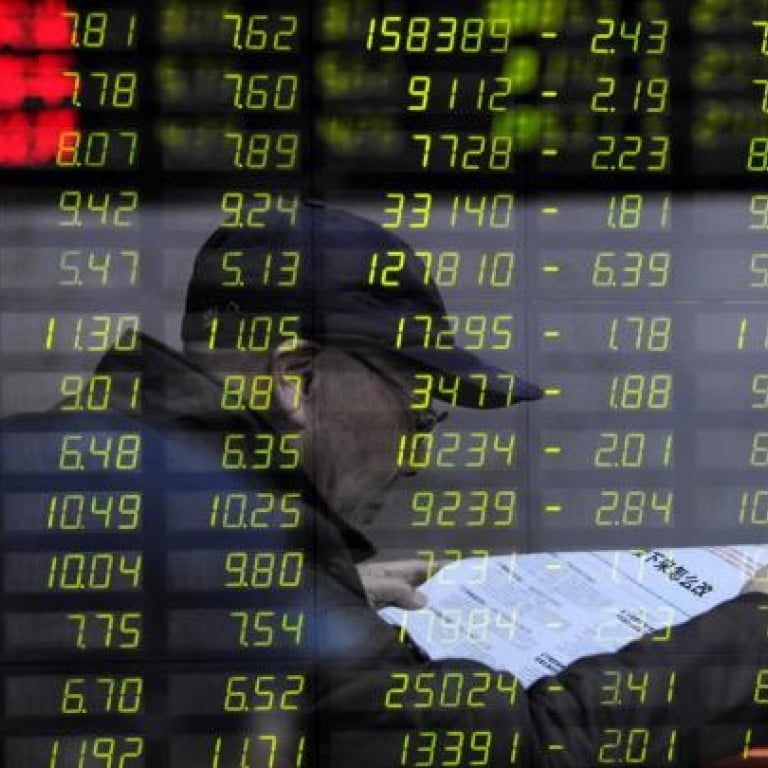
China to begin tests on expanded short selling system
Securities regulator to start testing new system for short selling, and could launch it before the end of this year, despite fears of social unrest
The mainland's securities regulator is expected to begin testing a new technical system for expanded short selling in the coming weeks, a move likely to exacerbate the bearish sentiment on markets.
The China Securities Regulatory Commission (CSRC) has yet to set a clear timeframe for the system's launch, but sources close to the regulator said the liberalisation could be implemented as early as the end of the year.
Under the new system, brokerages will be able to borrow equities from other institutions before re-lending to their clients, who can then sell the shares as they bet on a further slide in the market.
"It is certain that the regulator will give a green light to the liberalisation sooner than later," said one Beijing-based fund manager briefed by CSRC officials on the matter. "The primary concern among the officials is that a short selling spree would cause the fragile stock market to collapse."
The Shanghai and Shenzhen stock exchanges announced in late August that they would expand margin trading and the short selling mechanism.
At that time, brokerages were allowed to only conduct margin trading - borrowing cash from other institutions to re-lend to their clients for share purchases - while putting short selling on hold.
The regulator said it hoped to bolster the weak market by expanding margin trading first.
Beijing began a trial run of margin trading and short selling in March 2010, but brokerages could only lend retail investors their own cash and shares.
Margin trading is viewed as a strong incentive to drive up the key indicator with an influx of fresh capital, since brokerages could borrow cash from a clutch of institutions to do the business.
It was estimated that the expanded margin trading system could usher in an additional 120 billion yuan (HK$148.46 billion) of fresh capital to the market.
But the regulator has been cautious about expanding short selling because of concerns that a slide in the market could cause social disunity.
Investors betting on a declining market could heavily borrow shares before dumping them.
The benchmark Shanghai Composite Index lost 14.7 per cent in 2010 before slumping 21.7 per cent last year. It was 6.5 per cent off last year's close yesterday, ending at 2,055.42 points.
CSRC chairman Guo Shuqing was given the task of stabilising the market when he took office last year.
Guo attempted to talk up the market by encouraging investors to buy blue-chip shares while urging listed firms to increase cash dividends.
Sources said the CSRC was under pressure to underpin brokerages which had fallen victim to dwindling trading volumes amid the bear market.
The expansion of margin trading and short selling mechanisms would give the brokerages a new growth engine as they collect fees and interest from clients.
The sources said the regulator would give the go-ahead to expanding short selling when a strong rebound occurs on the market; however, analysts predict the market has further to fall before it eventually bottoms out.

